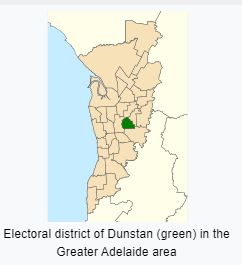
image : wikipedia
The Australian government’s proposal to tie the minimum wage increase to inflation has sparked debate, particularly concerning its social impact (ABC News, 2024). While proponents see it as a lifeline for low-paid workers struggling with rising costs, critics argue it might be an inadequate solution with unintended consequences. Let’s delve into the potential social ramifications of this proposal:
Boosting Living Standards:
-
Pros: A minimum wage increase aligned with inflation could help low-wage earners maintain their purchasing power. As the cost of essentials rises, a bump in the minimum wage would ensure their essential needs remain affordable. This could improve their quality of life and reduce financial stress (
-
Cons: Inflation doesn’t always reflect the rising cost of essential goods and services that disproportionately impact low-income households. Rent, groceries, and utilities might increase faster than inflation, leaving workers with minimal gains
Income Inequality:
-
Pros: By raising the minimum wage, the government aims to narrow the gap between low-wage earners and higher-income brackets. This could contribute to a more equitable distribution of wealth and reduce income inequality
-
Cons: The impact on income inequality might be limited. If inflation continues to rise, the minimum wage increase might only prevent low-wage workers from falling further behind, not necessarily bringing them closer to higher earners
Worker Bargaining Power:
-
Pros: An inflation-linked minimum wage increase could strengthen the bargaining power of low-wage workers. Knowing the minimum wage automatically adjusts to inflation puts them in a better position to negotiate for higher wages that keep pace with the cost of living
-
Cons: The effectiveness of this proposal in boosting bargaining power depends on factors like unionization rates and labor market conditions. In some sectors, low-wage workers might still lack the leverage to negotiate beyond the mandated minimum
Additional Considerations:
-
Impact on Employment: Opponents worry that higher labor costs might discourage businesses from hiring, leading to job losses. However, studies on the minimum wage’s impact on employment have yielded mixed results
-
Sustainability: Continuously raising the minimum wage in line with inflation might become unsustainable in the long run, especially if productivity growth doesn’t keep pace. The Fair Work Commission will need to weigh these factors when making its final decision
Overall, the social impact of linking the minimum wage to inflation is multifaceted. While it might offer some relief to low-paid workers, its effectiveness as a long-term solution for income inequality and improving living standards remains debatable.
Citation:
- ABC News. (2024, March 25). Government pushes for minimum wage increase to keep pace with inflation. https://www.abc.net.au/news/2023-06-11/was-the-minimum-wage-increase-inflationary-gender-inequality/102460630